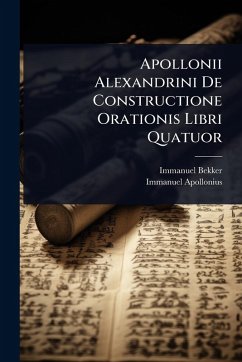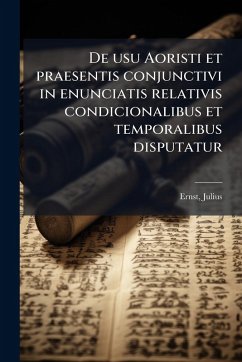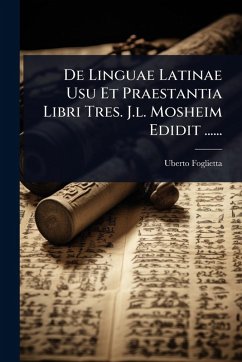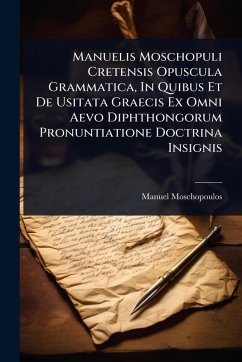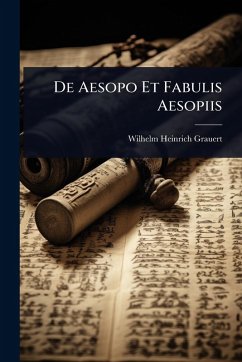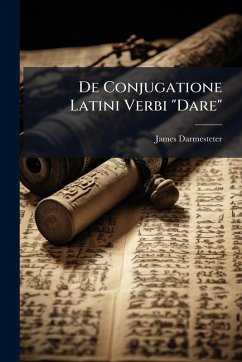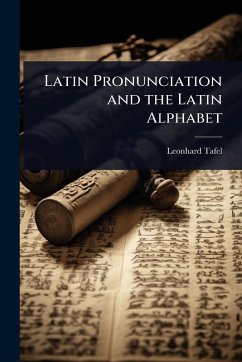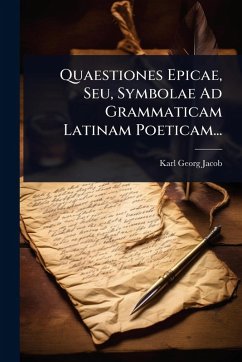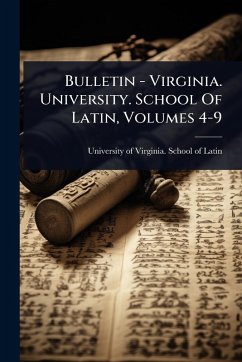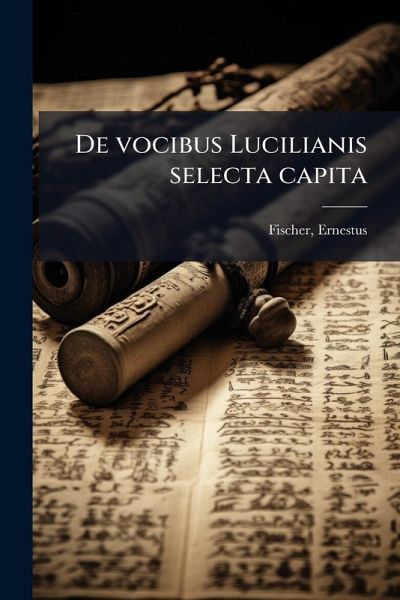
De vocibus Lucilianis selecta capita

PAYBACK Punkte
8 °P sammeln!
De vocibus Lucilianis selecta capita by Ernestus Fischer, originally published in 1880, is a scholarly work dedicated to the study of the language of Lucilius. This meticulously researched text delves into the specific vocabulary used by Lucilius, offering insights into the nuances and peculiarities of his linguistic style. As a focused examination of Lucilius's language, this book provides valuable resources for students and scholars of Latin literature and linguistics. It serves as a foundational text for understanding the evolution and usage of Latin during Lucilius's time, preserving criti...
De vocibus Lucilianis selecta capita by Ernestus Fischer, originally published in 1880, is a scholarly work dedicated to the study of the language of Lucilius. This meticulously researched text delves into the specific vocabulary used by Lucilius, offering insights into the nuances and peculiarities of his linguistic style. As a focused examination of Lucilius's language, this book provides valuable resources for students and scholars of Latin literature and linguistics. It serves as a foundational text for understanding the evolution and usage of Latin during Lucilius's time, preserving critical knowledge for future generations of classical scholars. This work has been selected by scholars as being culturally important, and is part of the knowledge base of civilization as we know it. This work was reproduced from the original artifact, and remains as true to the original work as possible. Therefore, you will see the original copyright references, library stamps (as most of these works have been housed in our most important libraries around the world), and other notations in the work. This work is in the public domain in the United States of America, and possibly other nations. Within the United States, you may freely copy and distribute this work, as no entity (individual or corporate) has a copyright on the body of the work. As a reproduction of a historical artifact, this work may contain missing or blurred pages, poor pictures, errant marks, etc. Scholars believe, and we concur, that this work is important enough to be preserved, reproduced, and made generally available to the public. We appreciate your support of the preservation process, and thank you for being an important part of keeping this knowledge alive and relevant.



